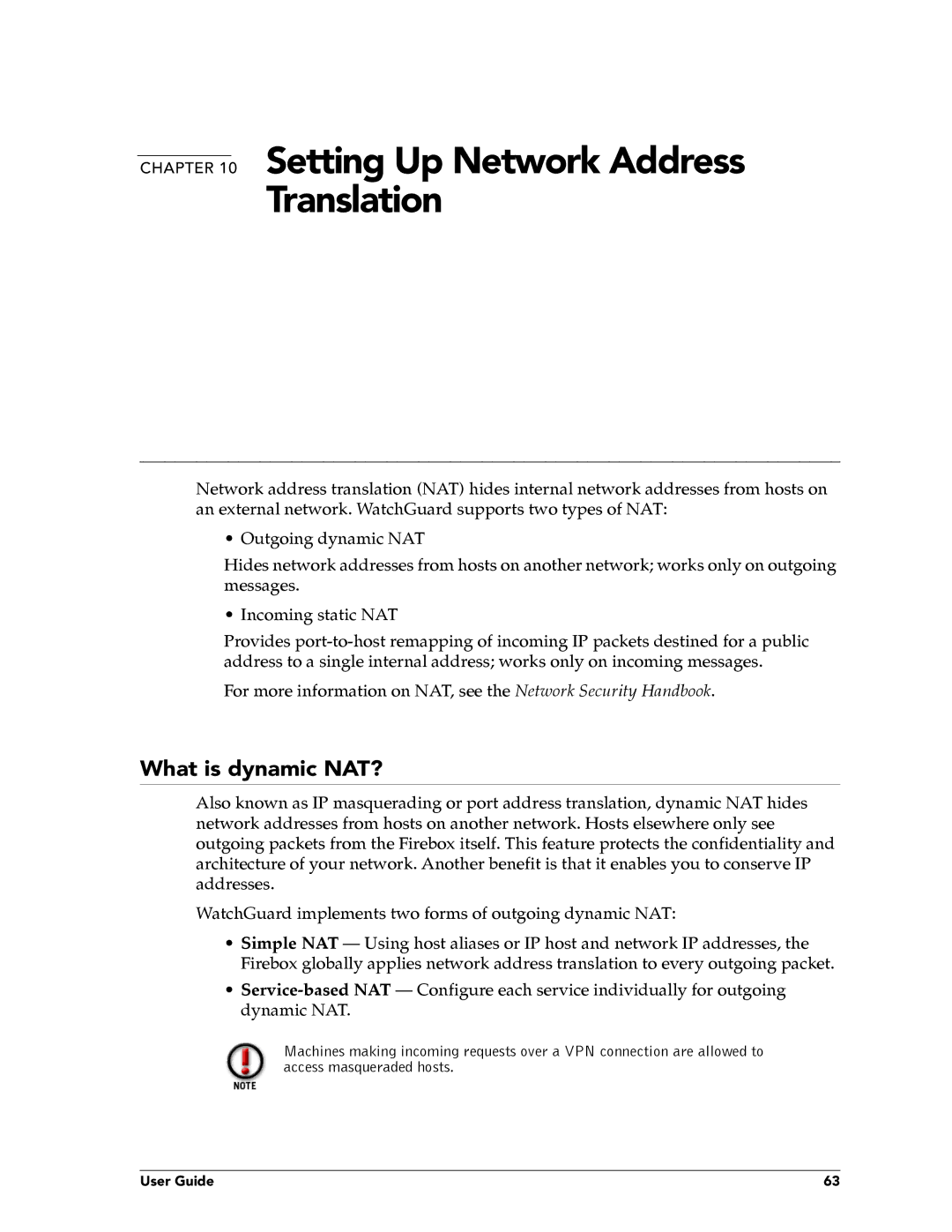
CHAPTER 10 Setting Up Network Address
Translation
Network address translation (NAT) hides internal network addresses from hosts on an external network. WatchGuard supports two types of NAT:
• Outgoing dynamic NAT
Hides network addresses from hosts on another network; works only on outgoing messages.
• Incoming static NAT
Provides
For more information on NAT, see the Network Security Handbook.
What is dynamic NAT?
Also known as IP masquerading or port address translation, dynamic NAT hides network addresses from hosts on another network. Hosts elsewhere only see outgoing packets from the Firebox itself. This feature protects the confidentiality and architecture of your network. Another benefit is that it enables you to conserve IP addresses.
WatchGuard implements two forms of outgoing dynamic NAT:
•Simple NAT – Using host aliases or IP host and network IP addresses, the Firebox globally applies network address translation to every outgoing packet.
•
Machines making incoming requests over a VPN connection are allowed to access masqueraded hosts.
User Guide | 63 |
